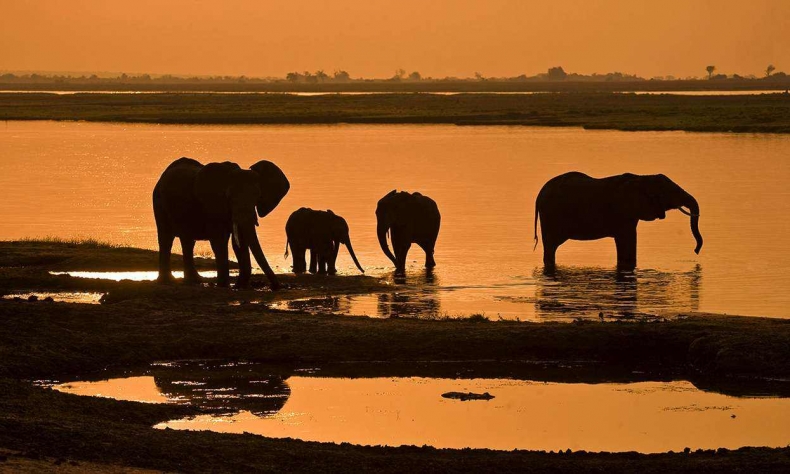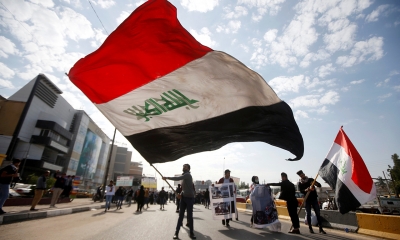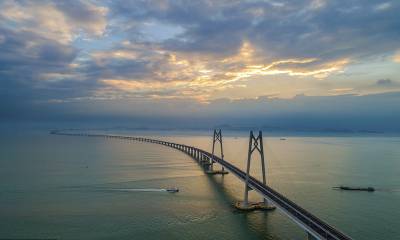The Real Story Behind Chinese ‘Debt Diplomacy’ in Africa

Africa’s rising levels of external debt – especially those with China – seem to be a cause for concern for many onlookers.
Africa’s rising levels of external debt – especially those with China – seem to be a cause for concern for many onlookers. China seems to using the lure of cheap money to help seize and take control of the continent’s hotly contested land and resources. But, in here lies the unstated assumption that the pursuit of Africa’s mineral wealth and resources is China’s primary aim for setting up shop on the continent. It’s not.
A Relationship that Spans Six Centuries
China and Africa first started engaging with each other on official, diplomatic terms when legendary Chinese explorer Zheng He set sail across the world in the early 1400s, and became one of the first Chinese to set foot on the African continent. The voyage was done under the auspices of Emperor Yong Le during the early years of the Ming Dynasty – a period draped in the warm embraces of openness, exploration and trade expansion.
In recent decades, the Middle Kingdom has rediscovered this long, buried part of itself and now represents a crucial partner of global trade and investment to much of the world. Africa is no stranger to this. China started out in much of the continent as a novice player, behind the likes of the USA, the former colonial powers of Europe, and regional powerhouse South Africa in the mid to late 2000s. Now it is the continent’s largest trading partner and the go-to nation for development finance.
Wariness Looms out West as China Rekindles an Old Friendship
This has set off alarm bells for much of the Western world, and accusations of resource plundering and a poor record of job creation for local populations ring strong from a Who’s Who of the Western media and politicians. These include the likes of the BBC and CNN, and major politicians such as former US presidential candidate Hillary Clinton and former US Secretary of State Rex Tillerson. But, with scant evidence available to support these assertions, many have moved on to a new trope – that being the debt trap accusation.
The story goes that China, under the guises of streamlining African development, overwhelms countries with debt that it knows they won’t be able to pay back. Then, when it’s time to pay up, debt-ridden finance recipients are forced to give up assets such as access to military bases, and ownership of key infrastructure, airports, seaports and railway lines, to name a few.
That Sri Lanka Port
Proponents of this theory point to the fast rising level of debt owed to China by Africa, with nearly a quarter of the continent’s external debt being Chinese financed, according to the Jubilee Debt Campaign. The example of a Chinese private company taking control (by leasing and managing, not owning) of a port in Sri Lanka in order to improve the port’s finances has also been latched on to. But, I am not a fan of using one individual case to speak for the extensive, multi-faceted relationship between dozens of different nations, each with their own competing interests and unique circumstances, that is encapsulated by Sino-African relations.
A lot of details are also normally glossed over with that example. One of those is that the Sri Lankan government always had the choice of avoiding this scenario by simply bailing out the port in question. However, the Sri Lankan Ambassador to China recently noted in an interview with the Beijing Reviewthat, in order to save taxpayer money, Sri Lanka opted to have China Merchant Port Holdings take majority control of the port. There lies another important detail that’s typically left out too, the port is not wholly Chinese-managed. 30 percent still remains with the Sri Lankan port authority, as part of the existing joint ventures responsible for managing the port. Sri Lanka also has the option of negotiating the purchase of the rest of the joint ventures anytime they wish.
Market Access Trumps Getting Paid in Full
Also, if we’re going to cite this one supposed example of Chinese debt diplomacy, let us not also forget about the numerous examples of Chinese debt forgiveness and debt restructuring. For instance, earlier this month, China reached an agreement with the Republic of Congo to reschedule and possibly even cancel some of what is over $2 billion owed by the nation to China. The East Asian giant also recently cancelled all of the interest-free loans it issued to Ethiopia as of the end of 2018. It cancelled $78 million of Cameroon’s debt in January of this year too.
The verdict is out on the conspiracy theory surrounding Chinese debt diplomacy, as closer examination of the actual evidence on hand swiftly debunks this notion.
This does lead us to wonder, if China’s not really after Africa’s resources then what exactly is in it for them? Promise is the main motivator at play here. Beyond the continent’s resources, its burgeoning and urbanizing youth mark as the big growth opportunity for China and the rest of the world.
Establishing a Place on the World’s Last Frontier
As new cities and industrial centers begin to blossom far and wide across Africa, lucrative, untapped markets develop. Indeed, China got this memo a while ago. As data from the China-Africa Research Initiative shows that Chinese companies have already made over $400 billion in gross revenue from Africa-based construction projects for the 1998-2017 period. This now means that the Middle Kingdom is also well placed to compete for up to $1 trillion of estimated infrastructure spending in Africa over the next decade.
China’s vast business and economic African footprint will also do well to insulate China from the effects of increasingly tense trade and geopolitical China-US relations. Huawei – a leading Chinese brand in multiple African markets – and its recent run-ins with the West, illustrates this point well.
With Africa’s share of the global population projected to increase from 2010’s figure of 15 percent, to 25 percent in 2050, at a time when increasingly more of the world’s workforce will be based in the continent, China is working to provide Africa with the capital, technology and infrastructure needed to facilitate this growth and have it pay big dividends for Africa. Murmurs of a debt trap lack any real evidence and miss the bigger picture at play between the two regions.
Timothy Lobban BA (Cantab) writes for China Focus and china.org.cn.
 Facebook
Facebook
 Twitter
Twitter
 Linkedin
Linkedin
 Google +
Google +







